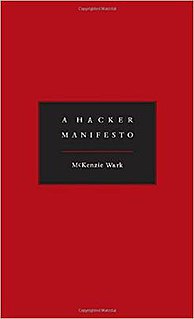 W
WDecoding the Universe: How the New Science of Information Is Explaining Everything in the Cosmos, from Our Brains to Black Holes is the third non-fiction book by American author and journalist Charles Seife. The book was initially published on January 30, 2007 by Viking.
 W
WEverything Is Miscellaneous: The Power of the New Digital Disorder is a book by David Weinberger published in 2007 (ISBN 0805080430). The book's central premise is that there is no universally acceptable way of classifying information. Starting with the story of the Dewey Decimal Classification, Weinberger demonstrates that all attempts to classify inherently reflect the biases of the person defining the classification system.
 W
WGlut: Mastering Information Through The Ages is a 2007 book written by Alex Wright, a writer and information architect for The New York Times. Wright's intention is to provide a broad historical overview of the development of information transmission and organization systems.
 W
WA Hacker Manifesto is a critical manifesto written by McKenzie Wark, which criticizes the commodification of information in the age of digital culture and globalization. It was published in the United States in 2004.
 W
WThe Information: A History, a Theory, a Flood is a book by science history writer James Gleick, published in March 2011, which covers the genesis of the current information age. It was on The New York Times best-seller list for three weeks following its debut.
 W
W"The Market for Lemons: Quality Uncertainty and the Market Mechanism" is a widely-cited 1970 paper by economist George Akerlof which examines how the quality of goods traded in a market can degrade in the presence of information asymmetry between buyers and sellers, leaving only "lemons" behind. In American slang, a lemon is a car that is found to be defective after it has been bought.
 W
WToo Big to Know: Rethinking Knowledge Now That the Facts Aren't the Facts, Experts Are Everywhere, and the Smartest Person in the Room Is the Room is a non-fiction book by the American technology writer David Weinberger published in 2012 by Basic Books.
 W
WYou Could Look It Up is a book of essays on the history of reference works by Rutgers University English professor Jack Lynch.